Bringing Fathers Into Focus for Child & Family Well-Being
As we reimagine public systems and services to work better for families, we have an opportunity to do so in a way that honors the full diversity of family structures, as families themselves define them, and builds upon families’ inherent resilience. This requires an intentional and explicit commitment to applying a gender lens inclusive of fathers to our analyses of family-supportive policy, practice, and research.
Fathers — regardless of residential or relationship status — influence their child(ren)’s health and co-parent’s well-being. A father’s presence and engagement can drastically improve his child’s cognitive and social skills, and dads play a critical role in improving their family’s economic security and social mobility.
We know that families with low incomes are disproportionately headed by single mothers. Single moms overwhelmingly bear the brunt of family duties and childcare, which is a cycle perpetuated through gendered stereotypes, historical norms and practices, and race-based bias and discrimination against fathers – especially those from Black, Indigenous, and people of color (BIPOC) communities. By leaving fathers out of the national narrative and ignoring them in public policy and community-based programing, we are undervaluing and underutilizing one of the greatest assets to advance gender equity and increase family prosperity.
It’s essential we acknowledge and address the intentional marginalization of fathers to more effectively engage dads for whole child and family well-being. With these recognitions, Ascend at the Aspen Institute convened the Fatherhood Learning and Action Community (Fatherhood LAC) – a cohort of three fathers and 11 organizations with demonstrated expertise in and strong capacity to engage and support fathers to identify and document policy barriers, best practices, and opportunities for father engagement and support.
Our analysis applied a two-generation lens – prioritizing innovations that build family well-being by intentionally and simultaneously moving children and the adults in their lives toward economic security, educational success, and health – and surfaced the following opportunities:
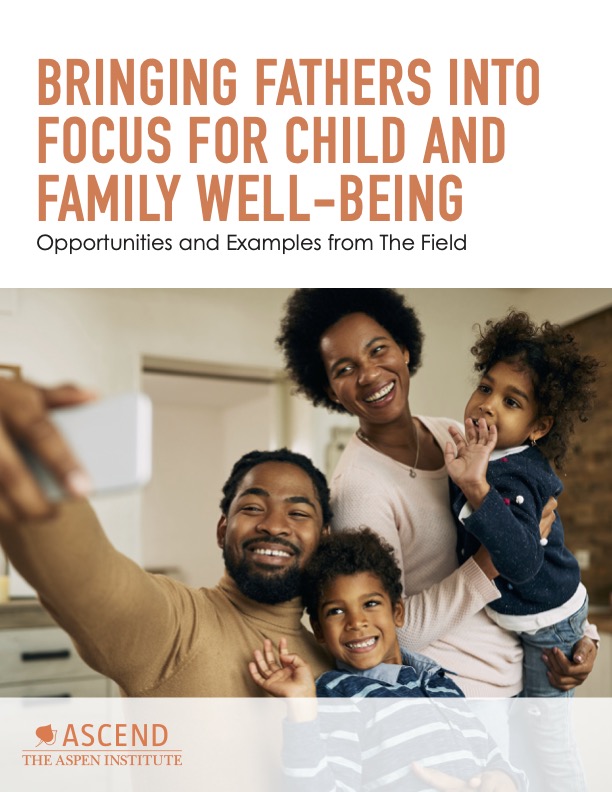
This series of publications analyzes challenges and opportunities for leaders and entities committed to the well-being of children and families to more effectively engage fathers for family prosperity.
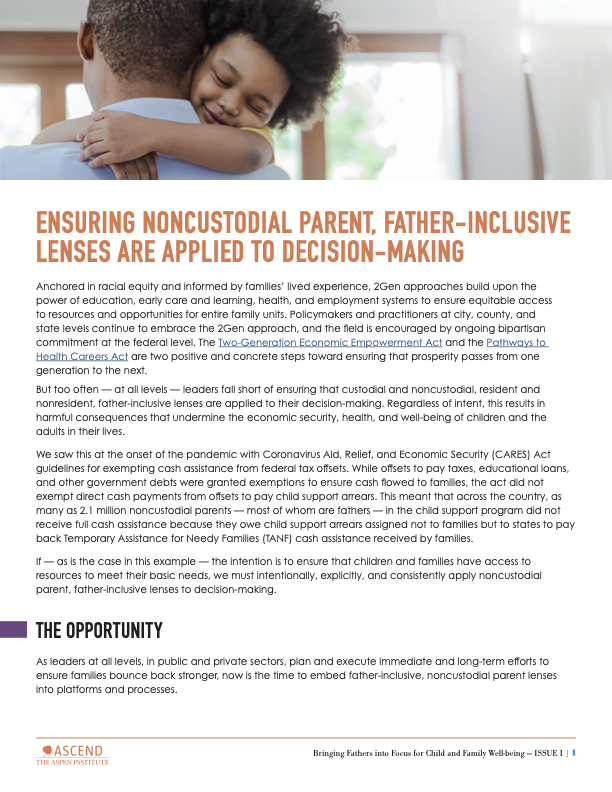
- 1. Ensuring Noncustodial Parent, Father-Inclusive Lenses are Applied to Decision-Making
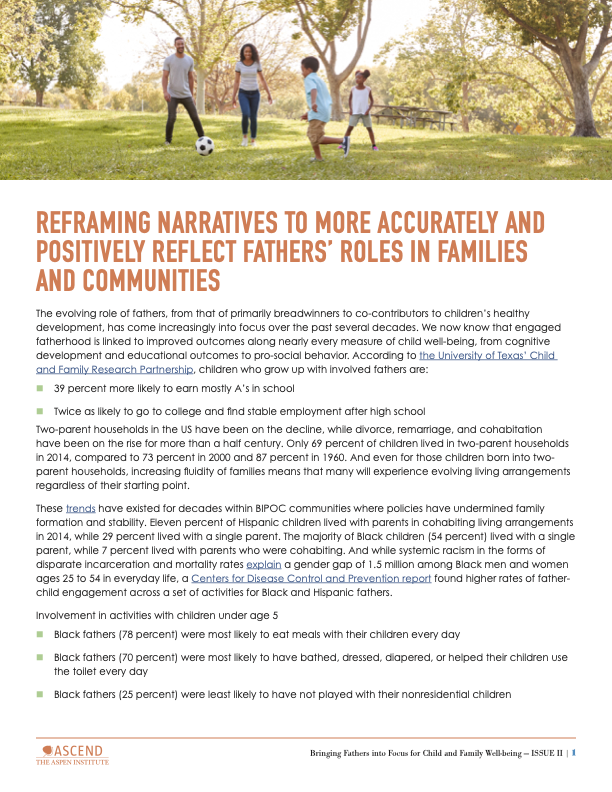
- 2. Reframing Narratives to More Accurately and Positively Reflect Fathers’ Roles in Families and Communities
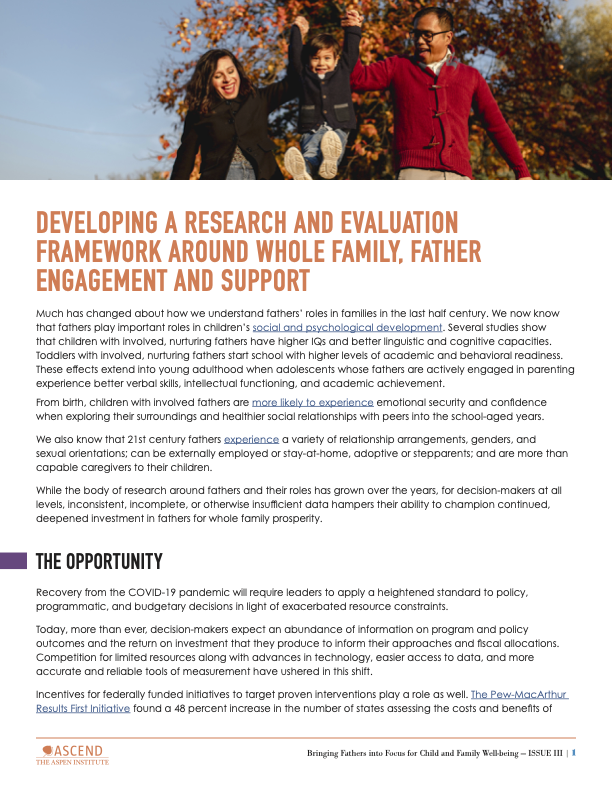
- 3. Developing a Research and Evaluation Framework Around Whole Family, Father Engagement and Support
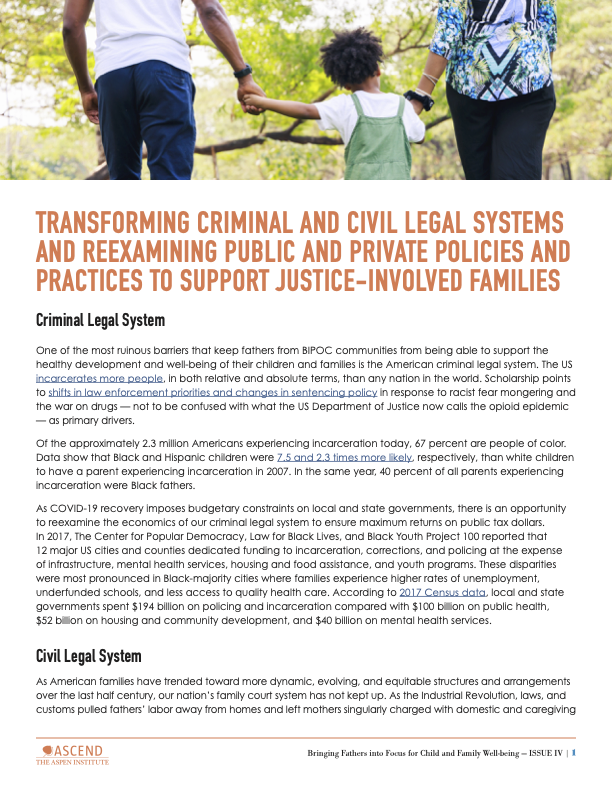
- 4. Transforming Criminal and Civil Legal Systems and Reexamining Public and Private Policies and Practices to Support Justice-Involved Families
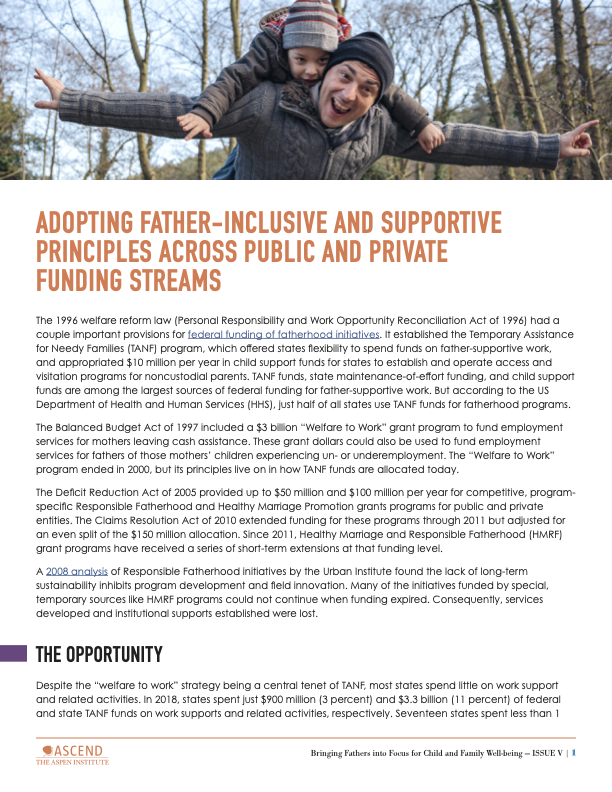
- 5. Adopting Father-Inclusive and Supportive Principles Across Public and Private Funding Streams
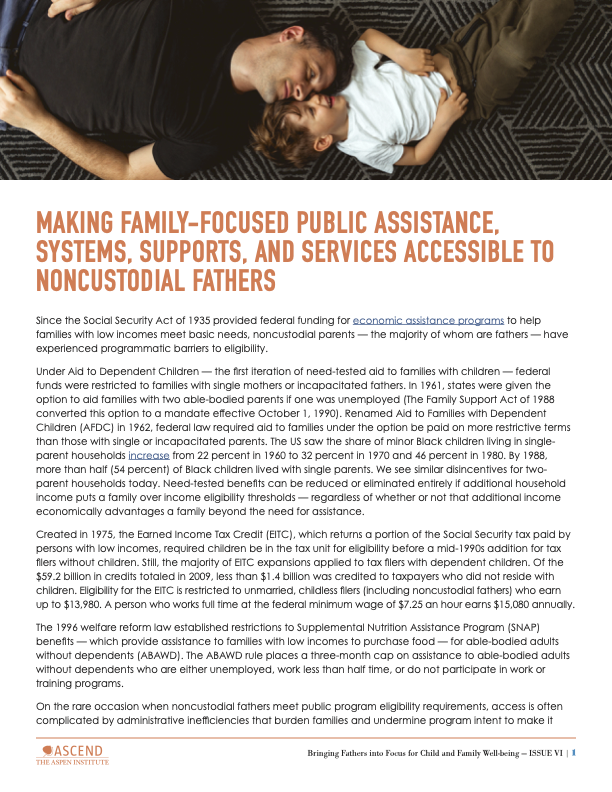
- 6. Making Family-Focused Public Assistance, Systems, Supports, and Services Accessible to Noncustodial Fathers
The Fatherhood LAC carried out most of its work in the midst of the COVID-19 pandemic, during which we saw leaders, systems, and structures respond in ways that centered whole family well-being like never before.
The central goal of child support policy must be child well-being. Child support policies designed to maximize child well-being can increase financial and other resources available to children, help remove barriers to consistent child support payment, increase employment retention among noncustodial fathers with support orders, support noncustodial parental engagement, and facilitate healthy co-parenting. Unprecedented levels of job loss, economic instability, and family isolation during the pandemic have raised the child support policy stakes for fathers, families, and communities.
As leaders at all levels and across all sectors of society work to make good on the promise of America for their constituencies, let us focus our attention where need, opportunity, and momentum are greatest — on families and communities with low incomes. In so doing, we must center racial equity — accounting for and addressing systemic barriers to opportunity in BIPOC communities — and apply a gender analysis that honors the roles of fathers and other noncustodial and nonbiologic caregivers in building family prosperity.
We invite and encourage policymakers, practitioners, the philanthropic community, and all who work toward child and family well-being to consider the lessons in this report and ways to incorporate them into their work. Leadership guided by these principles and informed by lived experiences will provide families and communities with opportunities to make the American dream a reality.
Related Posts



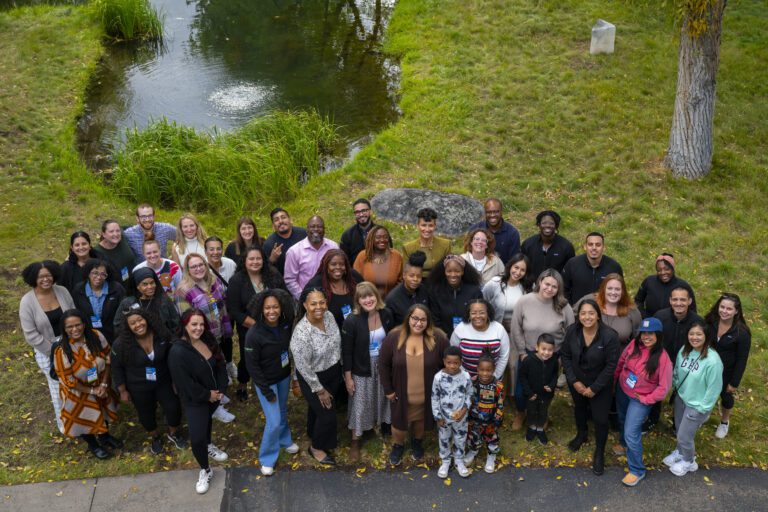
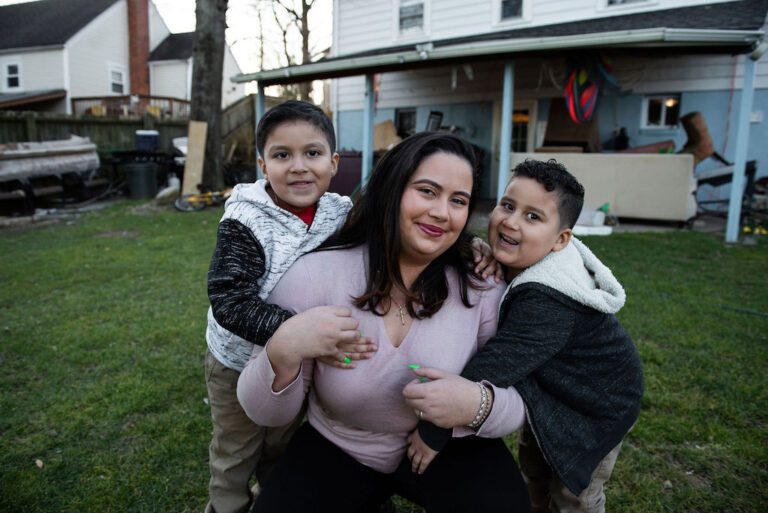

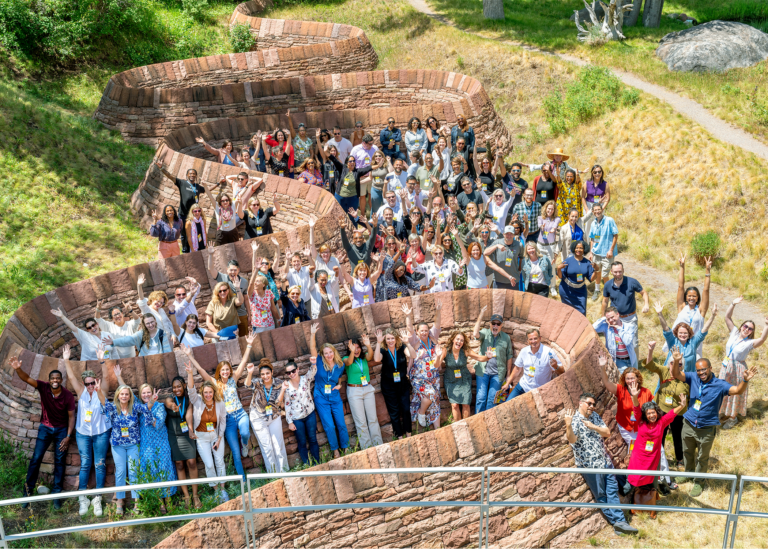
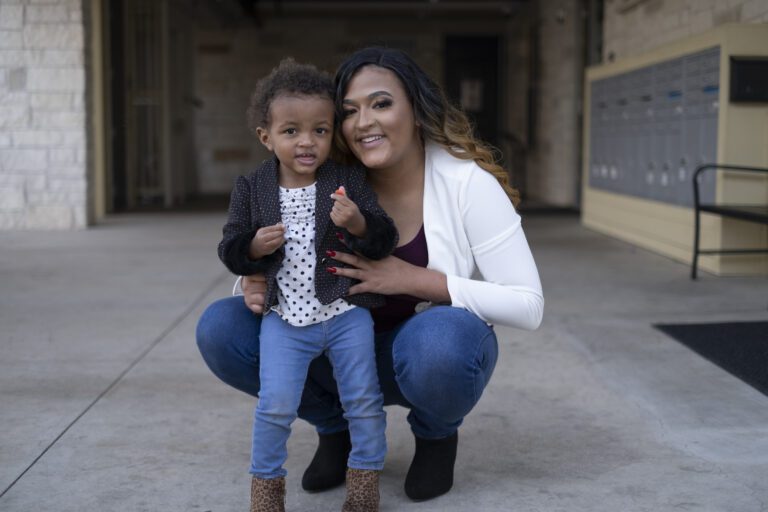
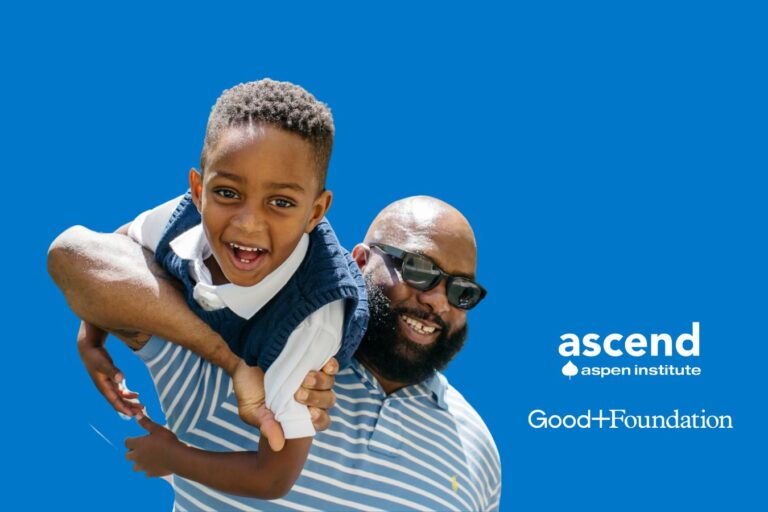
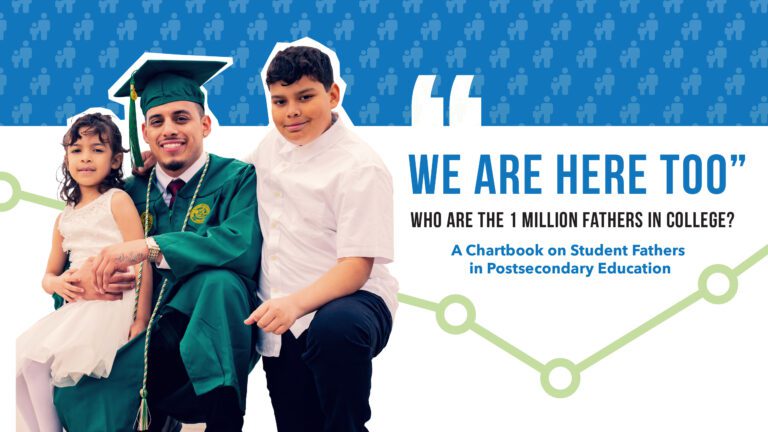

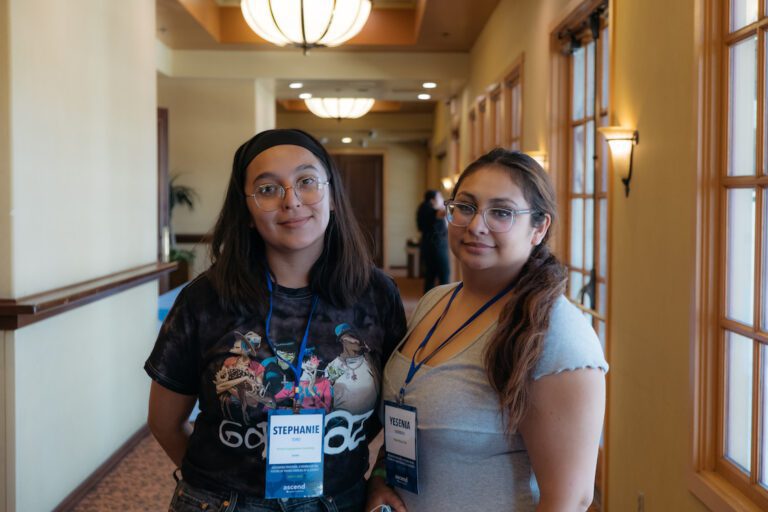


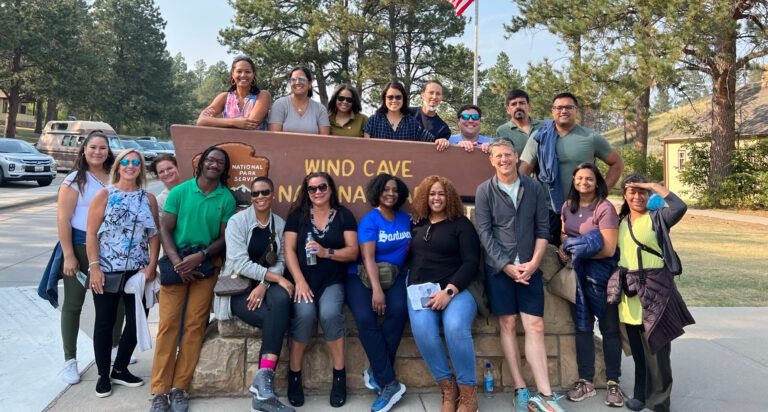
- Alameda Family Services
- Center for Policy Research
- Center for Urban Families
- Queens College (CUNY)
- Northwestern University, Institute for Policy Research
- Martha O’Bryan Center
- Maryland Department of Human Services
- Olmsted County Health, Housing and Human Services
- Starfish Family Services
- Vera Institute of Justice
